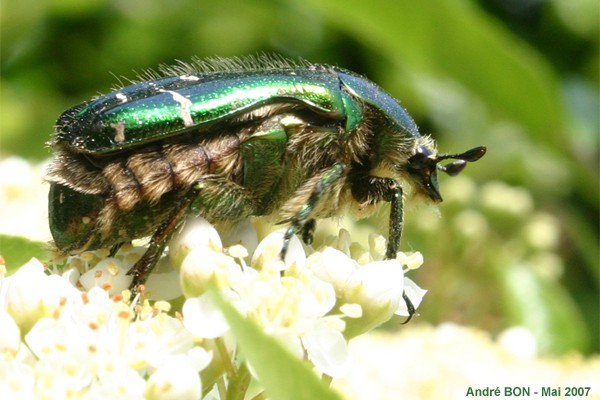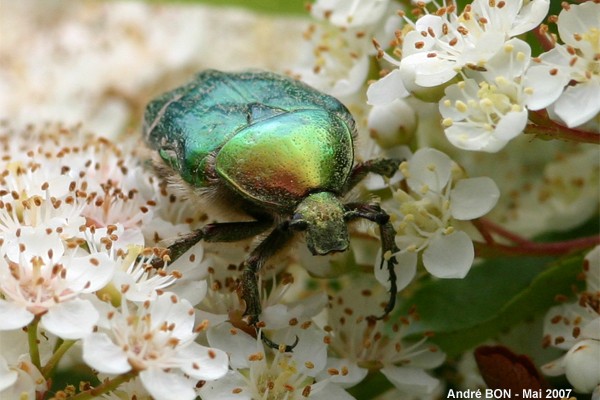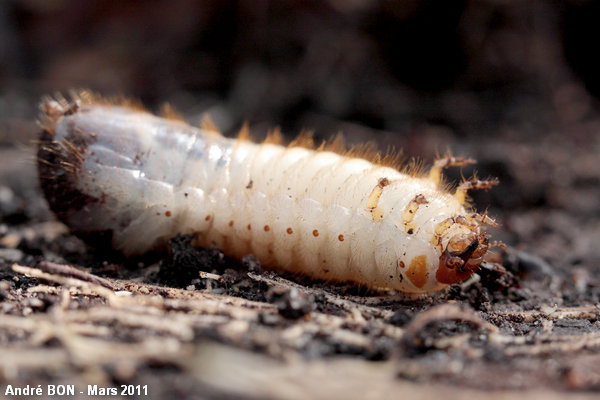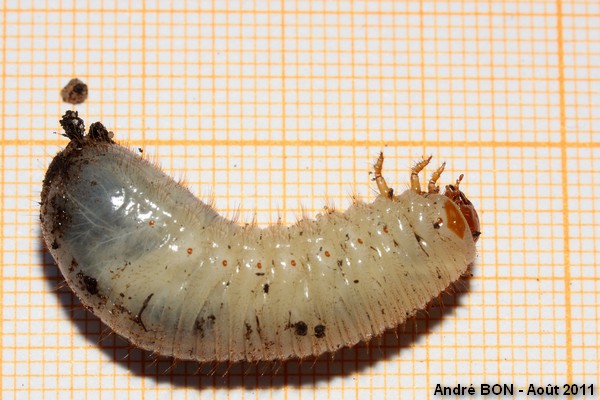




| Rose Chafer (Cetonia aurata (Linnaeus, 1761)) |





|
|
Scientific name: Cetonia aurata (Linnaeus, 1761) Common name: Rose Chafer Other names: Goldsmith Beetle, Leaf Chafer, June Bug or Golden Fly French name: Cétoine dorée Order: Coleoptera Family: Cetoniidae Wingspan : 15-20 mm. The width of the body can be half of the length. Biotope: Larvae grow in compost or rotting wood. The development cycle can reach 3 years. You can often see imagos on flowers (roses, pyracantha, etc.) Geographic area: South and central Europe, America. Observation period : May to September, especially on sunny days. |
The Rose Chafer is large coleoptera with a metallic green coloration. You can also find some with a bronze, copper, violet, blue/black or grey colour. There is a V shape on the back just behind the head. The Rose Chafer also shows small whitish marks across the elytra. The underside is a coppery colour. The Rose Chafer can easily fly. The elytra remain closed and the hind wings are deployed through holes on each side. In Corsica, you can also find Cetonia carthami which shows a more punctuated pronotum and two small rounded white patches near the tip of the elytra. |
| [To know more about the Rose Chafer] [Next picture] [Top] |

|
I saw this Rose Chafer on Piracantha flowers. As I also saw some Rose Chafer on the compost box, I will check whether the big white larvae you can find inside aren't the Rose Chafer which will fly in my garden these next years. |
| [To know more about the Rose Chafer] [Next picture] [Previous picture] [Top] |

|
Front view, this Rose Chafer seems to be swimming on flowers. |
| [To know more about the Rose Chafer] [Next picture] [Previous picture] [Top] |

|
Rose Chafer larva found in the compost heap. It differs from the Cockchafer larva by a small head and a larger rear tip. |
| [To know more about the Rose Chafer] [Next picture] [Previous picture] [Top] |

|
Other view of the same larva. You just need to slightly turn the compost, early spring, to find tenth of larvae. |
| [To know more about the Rose Chafer] [Previous picture] [Top] |

|
This larva is about 30 mm long. |